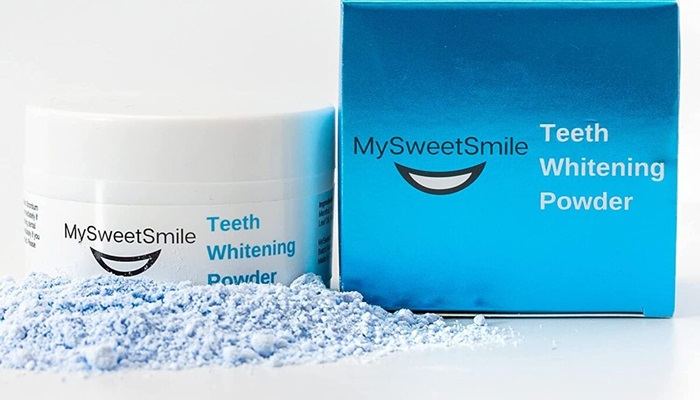Teeth whitening has become a popular cosmetic procedure, with many individuals seeking brighter, whiter smiles. While there are numerous commercial products and professional treatments available, some people turn to home remedies, such as baking powder, to achieve their desired results. This article explores whether baking powder can be used for teeth whitening, examining its effectiveness, safety, and alternative methods.
Understanding Baking Powder and Its Components
Baking powder is a common household item used primarily for baking. It is a leavening agent that helps baked goods rise by releasing carbon dioxide gas when mixed with moisture and heat. The main components of baking powder include:
Sodium Bicarbonate (Baking Soda): This is the primary active ingredient in baking powder and is responsible for its mild abrasive properties. It is often used in toothpaste and other dental products due to its ability to remove surface stains.
Acidic Component: Baking powder typically contains an acid, such as cream of tartar (potassium bitartrate), which reacts with the baking soda to produce carbon dioxide gas.
Starch: Cornstarch or another type of starch is often added to baking powder to absorb moisture and prevent the acid and baking soda from reacting prematurely.
see also: The 5 Best Teeth Whitening Kit with Light
The Science Behind Teeth Whitening
Teeth whitening involves removing or reducing stains and discoloration on the surface of the teeth. Stains can be categorized into two types:
Extrinsic Stains: These are surface stains caused by external factors such as food, drinks, and smoking. Common culprits include coffee, tea, red wine, and tobacco.
Intrinsic Stains: These are deeper stains that occur within the tooth structure. They can be caused by factors such as aging, certain medications, and excessive fluoride exposure.
Effective teeth whitening methods typically focus on removing extrinsic stains and lightening intrinsic stains to some extent.
How Baking Powder Works for Teeth Whitening
Baking powder, primarily due to its sodium bicarbonate content, can act as a mild abrasive. This means it can help remove surface stains from the teeth, leading to a temporary whitening effect. The abrasive action of baking soda can polish the teeth, making them appear cleaner and brighter.
Pros of Using Baking Powder for Teeth Whitening
Accessibility: Baking powder is readily available in most households and is inexpensive compared to commercial whitening products.
Mild Abrasiveness: Sodium bicarbonate is a gentle abrasive that can effectively remove surface stains without causing significant damage to the enamel when used correctly.
Neutralizing Acids: Baking soda has alkaline properties, which can help neutralize acids in the mouth. This can be beneficial for maintaining oral health and reducing the risk of tooth decay.
Cons of Using Baking Powder for Teeth Whitening
Limited Whitening Effect: Baking powder primarily works on extrinsic stains and may not be effective for intrinsic discoloration. The results may be subtle and temporary.
Potential Enamel Erosion: While sodium bicarbonate is a mild abrasive, excessive or improper use can lead to enamel erosion. This can increase tooth sensitivity and make teeth more susceptible to staining and decay.
Taste and Texture: The taste and gritty texture of baking powder can be unpleasant for some individuals, making it less appealing as a whitening method.
How to Use Baking Powder for Teeth Whitening
If you decide to use baking powder for teeth whitening, it is essential to do so safely and effectively. Here are some guidelines to follow:
Create a Paste: Mix a small amount of baking powder with water to form a paste. The paste should have a toothpaste-like consistency.
Apply to Teeth: Use a soft-bristled toothbrush to apply the baking powder paste to your teeth. Gently brush in circular motions for about two minutes.
Rinse Thoroughly: After brushing, rinse your mouth thoroughly with water to remove any remaining baking powder residue.
Limit Use: To prevent enamel erosion, use the baking powder paste no more than once or twice a week. Overuse can damage your teeth and gums.
Combine with Regular Oral Care: Baking powder should not replace regular brushing and flossing. Maintain your oral hygiene routine with fluoride toothpaste and regular dental check-ups.
Alternative Teeth Whitening Methods
While baking powder can provide a mild whitening effect, there are other methods available that may offer more significant and longer-lasting results. Here are some alternatives to consider:
1. Over-the-Counter Whitening Products
Numerous over-the-counter teeth whitening products are available, including whitening toothpaste, strips, and gels. These products often contain bleaching agents such as hydrogen peroxide or carbamide peroxide, which can penetrate the enamel and lighten intrinsic stains.
Pros:
Widely available and easy to use
Can provide noticeable results with regular use
Cons:
May cause tooth sensitivity or gum irritation
Results vary depending on the product and individual
2. Professional Teeth Whitening
Professional teeth whitening performed by a dentist offers the most effective and safest way to achieve a brighter smile.
Dentists use high-concentration bleaching agents and advanced techniques to whiten teeth.
Pros:
Significant and long-lasting results
Customized treatment tailored to individual needs
Supervised by dental professionals to minimize risks
Cons:
More expensive than over-the-counter products
Requires dental appointments
Conclusion
Baking powder, due to its sodium bicarbonate content, can provide a mild whitening effect by removing surface stains from the teeth. While it is an accessible and inexpensive option, its effectiveness is limited, and improper use can lead to enamel erosion and other dental issues.

